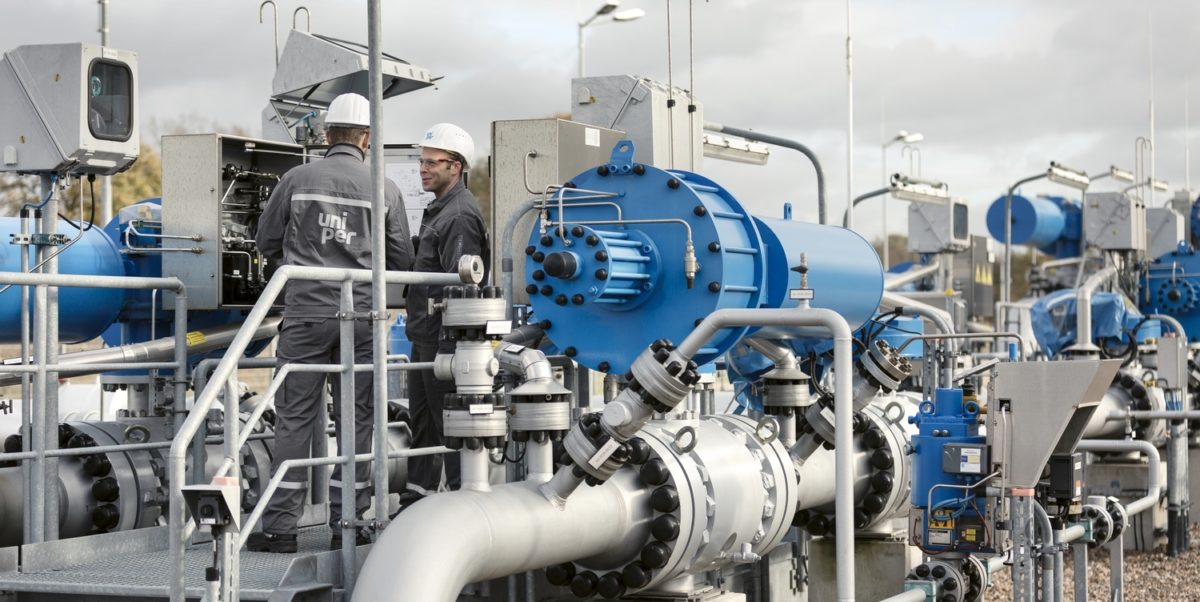A technical guidance document published by the European Commission today has confirmed natural gas can be deemed to ‘do no significant harm' to the EU's climate change mitigation strategy, albeit with caveats.
With the EU preparing to dole out the first payments from its €672.5 billion recovery and resilience fund (RRF) within a fortnight–in response to recovery and resilience plans drawn up by member states requesting cash for their Covid recovery programs–the commission has published guidance defining how to interpret the crucial requirement RRF funds not be spent in a way which does significant harm to the bloc's environmental objectives.
The six areas deemed EU environmental policies include climate change mitigation and the European renewables industry has insisted the burning of fossil fuel natural gas should not be financed by RRF money as it would harm that objective.
A technical guidance note published by the commission on the EUR Lex European law portal today, however, states money for natural gas projects for power and heating “can, exceptionally, be given on a case-by-case basis in member states that face significant challenges in the transition away from carbon-intensive energy sources.”
The document states eligibility can be secured if projects have greenhouse gas emissions lower than 250g of CO2 equivalent per kilowatt-hour over their lifetime. Alternatively, projects can be RRF funded if part of national plans with credible commitments to raise the use of renewable, “low-carbon gases” and concrete reforms to raise the share of renewables and investment in clean power; they also coincide with the simultaneous closure of “significantly more carbon-intensive” facilities; and the member state can demonstrate a credible trajectory for nearing its 2030 renewables target.
New natural gas transmission and distribution infrastructure can be supported by the RRF if it would also be able to accommodate renewable and low-carbon gases.
Natural gas boilers and residential heating systems can qualify for support if devices meet energy labeling requirements or are part of wider energy efficiency or building renovation programs which meet EU building energy performance requirements and significantly reduce greenhouse gas emissions. Such installation programs must also improve the quality of the environment, for example by reducing air pollution when replacing coal and oil-based systems.
The commission notes the fulfillment of the requirements mentioned does not alter the fact any natural gas projects must also not cause significant harm to the other five of the bloc's environmental objectives: climate change adaptation; the sustainable use and protection of water and marine resources; a circular economy; pollution prevention and control; and protection and restoration of biodiversity and ecosystems.
Circular manufacturing
Critics of natural gas may note, however, the exceptions afforded the fossil fuel appear to be at odds with a requirement that “for economic activities where there is a technologically and economically feasible alternative with low environmental impact,” the emissions of the new project be measured in absolute terms, rather than compared with previous technology. The commission gives the example of a proposed scrappage scheme to replace older, more polluting internal combustion engine (ICE) cars with newer, cleaner non-electric models. In such a case, states the document, the environmental impact of the new ICE cars should be measured against the impact of electric vehicles, which are a technologically and economically feasible alternative.
That example could equally apply to new gas-fired generation facilities, environmentalists are likely to point out, whose impact should be measured against solar and wind parks rather than coal power plants.
This content is protected by copyright and may not be reused. If you want to cooperate with us and would like to reuse some of our content, please contact: editors@pv-magazine.com.




By submitting this form you agree to pv magazine using your data for the purposes of publishing your comment.
Your personal data will only be disclosed or otherwise transmitted to third parties for the purposes of spam filtering or if this is necessary for technical maintenance of the website. Any other transfer to third parties will not take place unless this is justified on the basis of applicable data protection regulations or if pv magazine is legally obliged to do so.
You may revoke this consent at any time with effect for the future, in which case your personal data will be deleted immediately. Otherwise, your data will be deleted if pv magazine has processed your request or the purpose of data storage is fulfilled.
Further information on data privacy can be found in our Data Protection Policy.